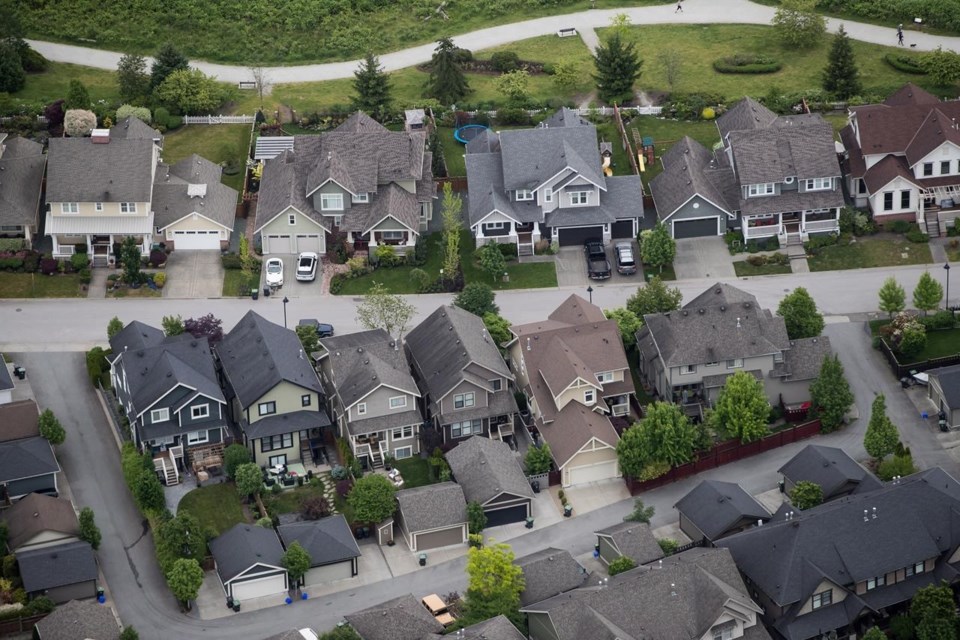VICTORIA — Assessed values of properties in British Columbia are up again, but the pricey Vancouver area has been upstaged by small towns where value estimates rose by more than 40 per cent.
Data posted on the BC Assessment website this week shows market value as of July 1, 2021, increased more than 40 per cent in the communities of Hope, Port Alberni, Lake Cowichan and other rural areas, while Vancouver was up 16 per cent.
Condos and townhomes in Vancouver showed even lower assessed values at seven per cent, rising from an average assessed value of $711,000 in July 2020 to $759,000 last July.
"Most of the province is up, but when you get outside of the Lower Mainland, it's the smaller towns where it's up most it seems," Bryan Murao, BC Assessment's deputy assessor, said in an interview on Tuesday.
The 16 per cent increase in a single-family home in Vancouver raised the average value to almost $2 million, but assessed property values soared in suburban communities further east, he said.
Assessed single-family home values were up 39 per cent in Langley, 38 per cent in Abbotsford and 40 per cent in Chilliwack, Murao said.
"Throughout the rest of the province, what we saw is a lot of the single-family homes in smaller communities actually were up quite a bit as well," he said.
Property value estimates in Hope, located about 150 kilometres east of Vancouver, rose 45 per cent, from $428,000 to $620,000 for the average price of a single-family home.
In Port Alberni, on Vancouver Island, property assessments were up 47 per cent and increased 48 per cent in Keremeos in the Interior.
BC Assessment officials appraise property values and are not economists, but Murao said during the ongoing COVID-19 pandemic they are anecdotally seeing people leaving the cities to work remotely or retire in communities where homes are more affordable.
"There's a little more of an opportunity for people to work from wherever now," he said. "You don't need to be in a specific place to work in a lot of jobs. I think that's opened up opportunities for a lot of people to move throughout the province," he said.
The movement of people to smaller communities appears to be a nationwide trend, said Murao.
The change has resulted in higher property values in B.C.'s smaller towns and rural areas as more people look for homes outside of the Vancouver area, he said.
The assessments indicate B.C.'s real estate market remains resilient and homeowners provincewide can expect higher assessment values for 2022.
The large increases in values don't always mean corresponding property tax increases, Murao said.
"You can't perfectly predict what the impact on property taxation is going to be, but for the most part really what's important is how your property changed relative to other residential properties within that same taxing jurisdiction," he said.
The total value of real estate in B.C. is about $2.44 trillion, an increase of nearly 22 per cent from 2021, he said.
This report by The Canadian Press was first published Jan. 4, 2022.
Dirk Meissner, The Canadian Press



